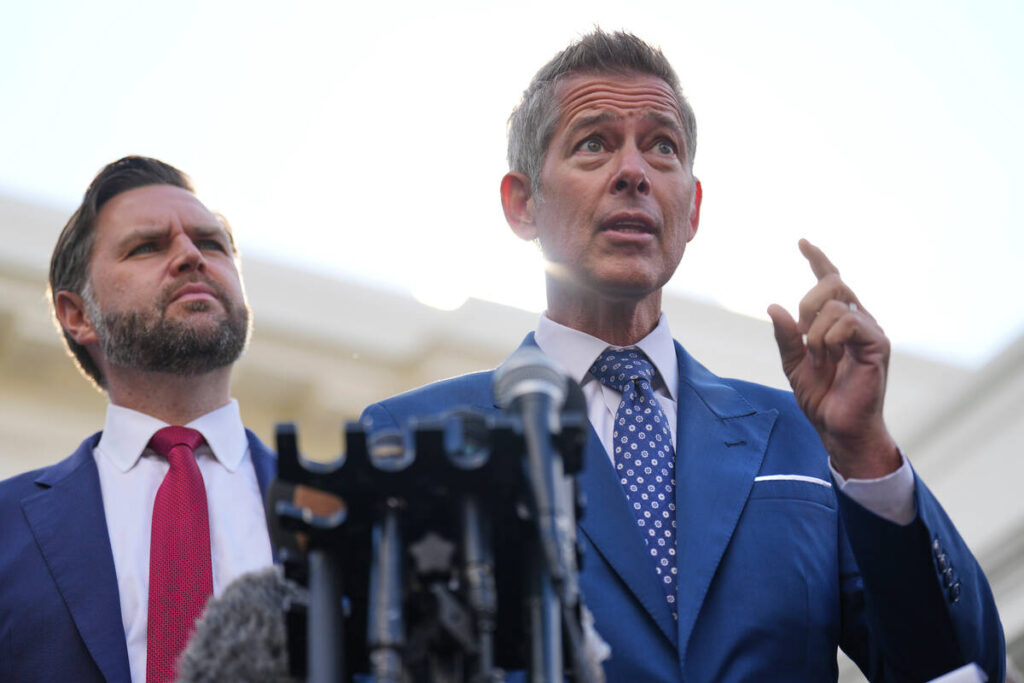California revokes 17K commercial driver’s licences for immigrants
Summary
California says it will revoke about 17,000 commercial driver’s licences after finding the licences’ expiry dates extended beyond the holders’ legally authorised stay in the United States, state officials announced. The move follows federal scrutiny led by Transportation Secretary Sean Duffy, who criticised California for issuing commercial licences to noncitizens and tied the issue to recent deadly crashes involving drivers not authorised to be in the country.
California says the affected drivers originally had valid federal work authorisations and that the revocations stem from a state law requiring licences to expire on or before an individual’s legal status ends as reported to the DMV. The state is issuing 60-day notices to those drivers while facing threats from the federal government to withhold further funding unless problems are fixed.
Key Points
- California will revoke roughly 17,000 commercial driver’s licences after finding expiry dates that extended past drivers’ legal status.
- The federal Transportation Department, led by Sean Duffy, criticised California and has already withheld $40m in federal funds over related enforcement and language concerns.
- California says the drivers had valid federal work authorisations when licences were issued and that the revocations respond to a state-law requirement on expiry dates tied to immigration status.
- New federal rules narrow which noncitizens can get commercial licences — only H-2A, H-2B and E-2 visa holders will qualify going forward, with verification against a federal database.
- The federal rule change is not retroactive; many current noncitizen commercial licence holders will be allowed to keep licences until renewal.
- Investigations were spurred partly by high-profile fatal crashes involving drivers without authorisation, increasing political pressure on states to tighten standards.
- The dispute highlights broader state–federal friction over immigration, road safety requirements and conditional federal funding.
Content summary
The announcement comes amid an escalating conflict between California and the Biden-era successor federal administration’s Transportation Department, which argues the state issued commercial licences improperly. California counters that it followed federal guidance when issuing licences and that the affected drivers had federally authorised work status.
Duffy’s review found problems in a sample of licences, prompting new federal requirements that will limit future commercial licences for noncitizens to a narrow set of visas and require database verification. California’s immediate revocations are intended to bring the state into compliance with the law cited by officials; the state has issued 60-day notices to the drivers involved.
Context and relevance
Why it matters: commercial driver’s licences are central to the US freight and passenger transport sectors. Any large-scale revocation affects drivers, carriers and supply chains and feeds into national debates on immigration policy and public safety. The episode also shows how federal funding can be used to cajole state compliance with national standards — and how audits and high-profile crashes can accelerate policy change.
For employers and drivers: expect short-term disruptions (licenses expiring on short notice) and longer-term shifts as states tighten verification processes and limit eligibility for noncitizen drivers. For policymakers and regulators: this is a reminder that record-keeping, immigration verification and interagency guidance will shape who can lawfully drive commercial vehicles.
Why should I read this?
Short version — it’s a proper headache for the trucking world and for state–federal politics. If you work in transport, logistics, HR for carriers, or follow immigration and safety policy, this story explains an immediate fix that will ripple into hiring, compliance checks and funding fights. We’ve skimmed the detail so you don’t have to — but don’t ignore it if trucks and licences affect you.
